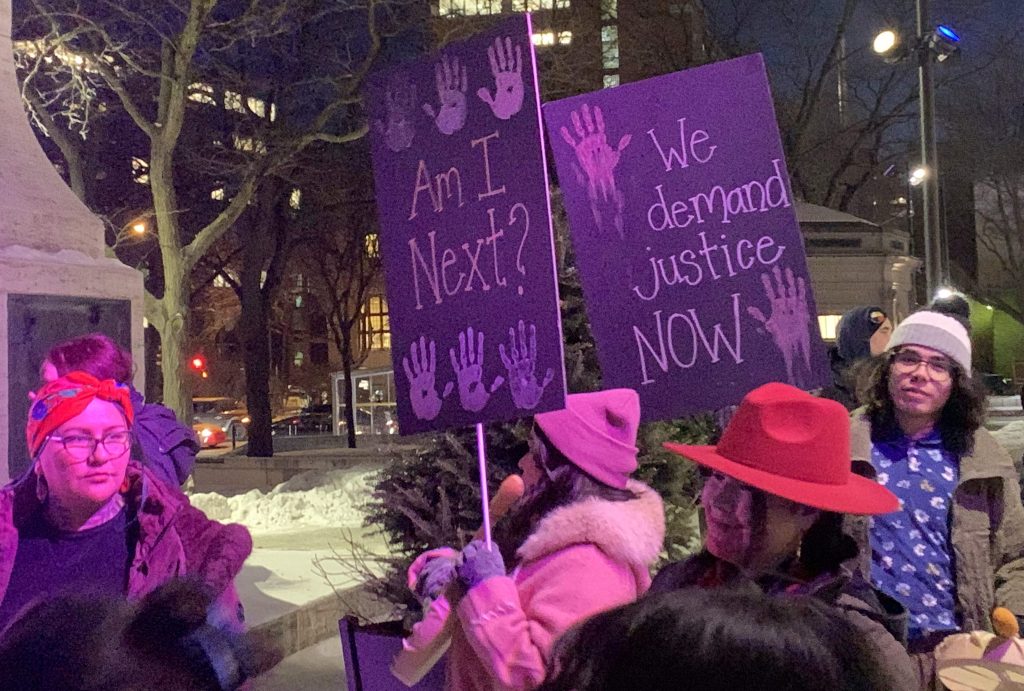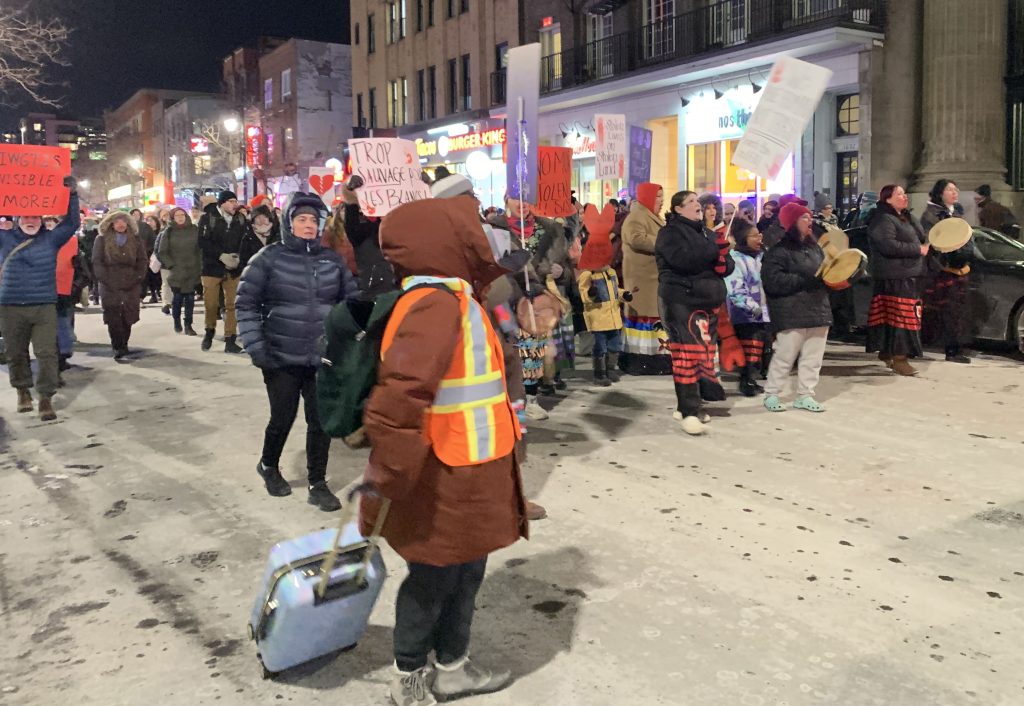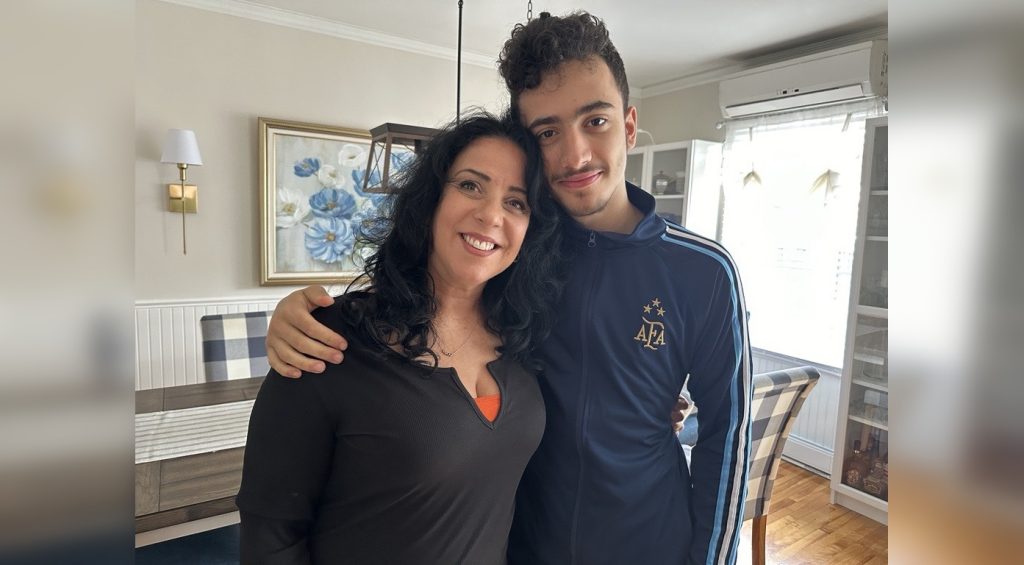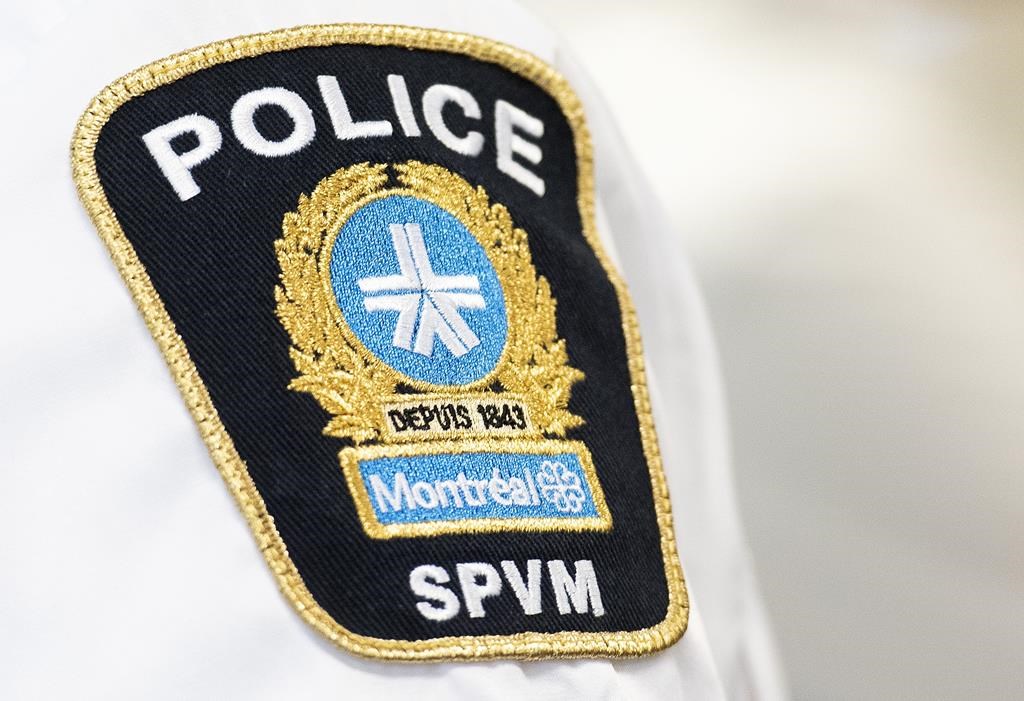Montrealers march in honour of missing and murdered Indigenous women, girls, trans and two-spirit people
Posted February 14, 2024 4:38 pm.
Last Updated February 14, 2024 11:20 pm.
Montrealers are coming together in Cabot Square on Wednesday for a memorial march to honour missing and murdered Indigenous women, girls, trans, and two-spirit people.
Many grieving shared their stories, while calling for action from Montreal police, the provincial and federal governments.
“Every single Native person will have this kind of story in their family and it’s way too common for us,” said Chloe, whose mother was murdered.
“My mother was found in an alleyway. There was no follow up to what happened to her. They always say it’s an overdose. There was violence on her body. And nothing was further done,” explained Chloe.
“It’s very frustrating sometimes because I do a lot of work in the community in the background. I work a lot with victims, sexual exploitation. And I work with one of the police programs in Montreal and I’m really proud to as a survivor myself. I think it’s very important that we have our own people.”
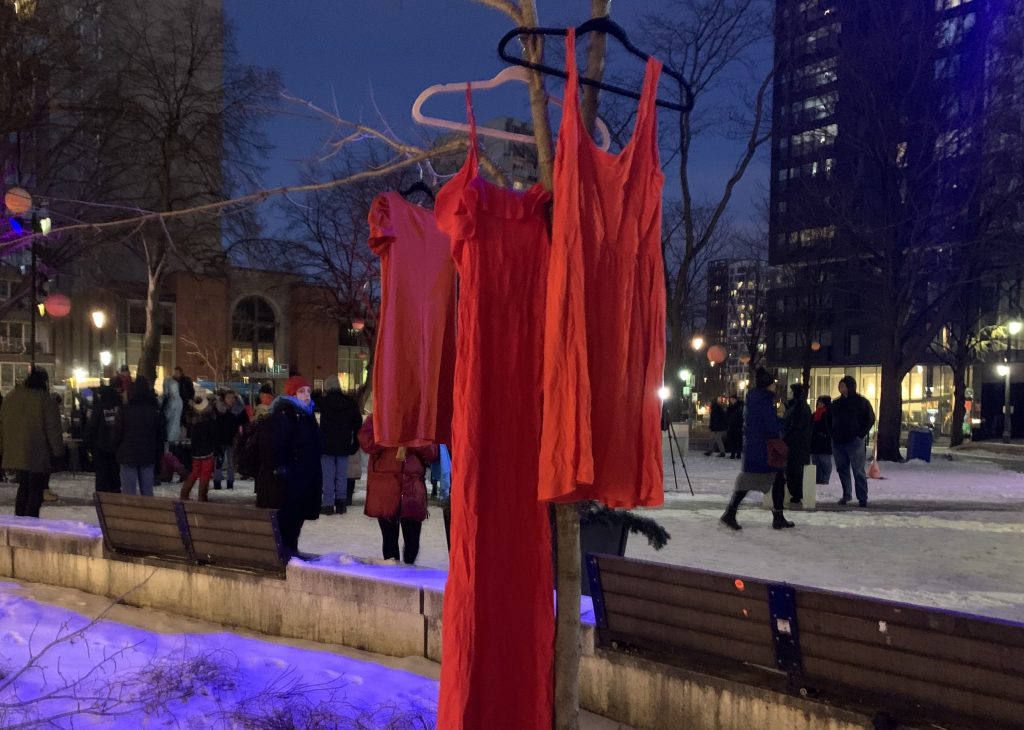
The march was led by the Iskweu Project, a Native Women’s Shelter of Montreal initiative responding to the needs of families in the case of an Indigenous woman or girl, trans or two-spirit going missing.
“The daily violence faced by Indigenous women is on the rise,” said Iskweu Project research coordinator Janis Qavavauq-Bibeau.
“We deserve to feel safe and have the same opportunities as any other Canadian. It’s important to address these issues effectively.”

“The story of MMIWG2S+, is really the story of Canada and the story of colonization. It’s something that happens in all different contexts. So through the health care system, the legal system, just on an everyday basis, it’s extremely rampant and therefore the solutions to address this will involve everyone as well,” said Laura Aguiar, project coordinator of the Iskweu Project.
According to the Assembly of First Nations, Indigenous women make up 16 per cent of all female homicide victims and 11 per cent of missing women in Canada, despite making up 4.3 per cent of the population.
“I do want to highlight one other case that’s a little more recent. That’s the case of 15 year old Linda Charlie Ukaituk who is a missing youth. She is Inuk as well and she has been missing since late August with no updates or answers on where she is,” said Aguiar.
“It’s extremely concerning that she’s been gone for so long and that there hasn’t been contact with her. So we’re just asking anyone who knows, has any information to either call the Missing Children’s Network or to report it to Crime Stoppers. Alternatively, you can also contact us at Iskweu.
“The call to action today is really to just hold space and honour those we’ve lost and to hold the grief of family members and friends.”
The Iskweu Project is currently advocating on behalf of 41-year-old Alasie Tukkiapik, whose body was found in the home of Nicodemo and his brother Francesco Sansalone in September 2023, police say. She had been missing for several months.
The Project is asking that violence prevention services for Indigenous women, girls, trans, and two-spirit people be adequately funded and available.
